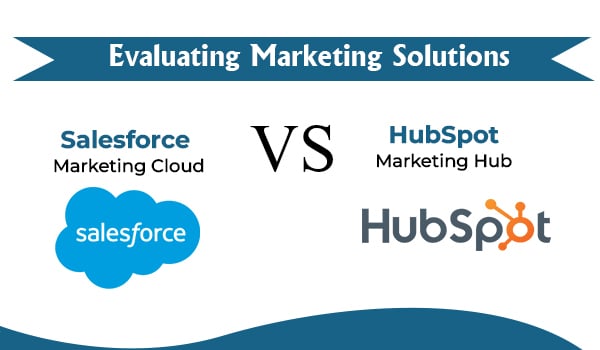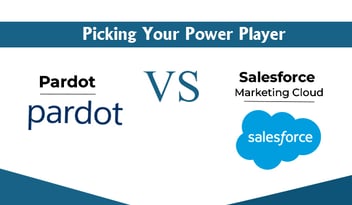Marketing automation platforms are the backbone of modern marketing operations, streamlining processes, and enabling businesses to scale their marketing efforts. Two key players in this field are Salesforce Marketing Cloud and HubSpot Marketing Hub. Both platforms offer powerful features, but they each have distinct characteristics that might make one a better fit for your business than the other. Here are the main differences between the two:
1. Intended Audience: Salesforce Marketing Cloud is often used by medium-sized to large businesses and is suitable for those with a strong technical team due to its more complex setup and customization capabilities. HubSpot Marketing Hub, on the other hand, is more user-friendly and suits a wide range of businesses, from small start-ups to larger enterprises.
2. Ease of Use: While both platforms are comprehensive, HubSpot often wins points for its user-friendly interface and ease of use. On the other hand, Salesforce Marketing Cloud, with its rich functionalities, can be more complex to navigate, especially for beginners.
3. Email Marketing: Both platforms offer robust email marketing capabilities. However, Salesforce Marketing Cloud offers more advanced email segmentation and personalization options. HubSpot excels in its email creation and testing process, providing a straightforward, intuitive approach.
4. CRM Integration: Salesforce Marketing Cloud seamlessly integrates with Salesforce's CRM, offering a unified solution. However, integration with other CRMs can be more complex. HubSpot's Marketing Hub, on the other hand, integrates well with various CRM platforms, including its own free CRM, offering more flexibility.
5. Social Media Management: HubSpot shines in the area of social media marketing, with its ability to schedule and publish posts and monitor social interactions directly from the platform. Salesforce Marketing Cloud also offers social media capabilities but may require additional integration for the same level of functionality.
6. Reporting and Analytics: Salesforce Marketing Cloud provides in-depth analytics, customizable reports, and data segmentation. HubSpot offers built-in analytics and reporting tools that are easier to use, although they may not be as extensive as Salesforce's.
7. Pricing: Salesforce Marketing Cloud generally has a higher cost due to its extensive features and scalability, making it a significant investment for larger companies. HubSpot offers more flexible pricing tiers, making it a more accessible option for smaller businesses or those just starting with marketing automation.
Both Salesforce Marketing Cloud and HubSpot Marketing Hub have their strengths and are powerful tools in their own right. The choice between the two depends on your business size, technical expertise, specific marketing needs, and budget. Consulting with a knowledgeable partner like CETDIGIT can help guide your business in making the right choice, ensuring you select a marketing solution that not only fits your current needs but also supports your future growth.
Salesforce Marketing Cloud vs. HubSpot Marketing Hub

Popular Post
- Nostalgia Marketing’s Power with Millennials & Gen Z
- Sales and Sales Development in 2024: Why AI is a Must-Have for Growth
- SaaS Founder's Bible: The Rise, Fall, and Future of SaaS (2020-2025)- Part 1: Navigating Market Shifts
- CETDIGIT's Innovative Approach to Salesforce & HubSpot CRM Implementation
- What is Salesforce CRM?
Subscribe
Similar Blogs

Why You Should Conduct Marketing With Pardot Marketing Automation
Introducing Pardot
Setting up and running a successful business is a huge challenge that has often...
READ MORE
Picking Your Power Player: Salesforce Marketing Cloud vs. Pardot
As businesses seek to amplify their marketing efforts, automation platforms like Salesforce...
READ MORE.jpg?width=352&name=Marketing%20Automation%20(1).jpg)
Best Fit: Top 10 Marketing Automation Platforms for Your Business
Marketing automation platforms have revolutionized the way businesses engage with their customers,...
READ MORE
Leave a Comment